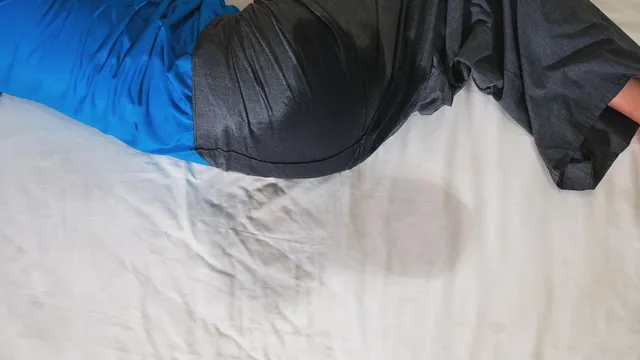- By Priyanka Munshi
- Sat, 11 Jan 2025 04:53 PM (IST)
- Source:JND
Soggy sheets, damp pajamas, and an embarrassed child—this scene is familiar in many households. However, parents should not get upset if their child wets the bed. Bedwetting, also known as nocturnal enuresis, is often a typical part of a child’s toilet training. It refers to passing urine unintentionally while asleep. Generally, bedwetting before the age of 7 is not a concern, as nighttime bladder control is the final stage of toilet training.
Approximately 16% of children experience difficulty staying dry at night by age 5, with a spontaneous resolution rate of about 15% per year thereafter. Boys are twice as likely to wet the bed as girls.
Causes Of Bedwetting
Bedwetting can occur due to several factors, including:
- Slow physical development (delayed milestones)
- Family history of bedwetting
- Excessive urine production at night
- Immature brain-to-bladder communication
- Being a deep sleeper
- Health conditions such as diabetes, constipation, or sleep apnea.
According to Dr. G. Ravindra Varma, bedwetting can be primary (not associated with other symptoms) or secondary to underlying urological conditions such as daytime symptoms, pain during urination, or recurrent urinary tract infections (UTIs). Persistent bedwetting can lead to low self-esteem in children, causing them to avoid social activities such as sleepovers or school camps.
If bedwetting continues beyond the age of 7, parents should consult a specialist (urologist) to investigate the underlying causes. The urologist will develop a treatment plan based on the child’s medical history, physical examination, fluid intake habits, urine analysis, and imaging of the urinary tract, such as an ultrasound.
Treatment Options
Treatment for bedwetting typically begins with simple lifestyle changes and home remedies, such as:
- Limiting fluid intake at night
- Encouraging double voiding (urinating twice) before bed
- Avoiding drinks and foods containing caffeine
- Providing easier access to the bathroom at night.
It is important for parents to understand that children do not wet the bed on purpose or to upset their parents. Patience and sensitivity are crucial as you work through the issue together. Positive reinforcement, such as a reward sticker system for dry nights, can help boost the child’s confidence. Moisture alarm systems, though less common in India, can also alert children when they begin to wet the bed.
Dr. Varma emphasizes that despite lifestyle measures, some children may continue to experience bedwetting. In such cases, medical therapy may be required. Medications can help by reducing nighttime urine production or stabilizing bladder activity.
In older children, bedwetting can be particularly challenging, especially when they are preparing to join a hostel or engage in social activities. These cases often require counseling and empathy, alongside medication to address the issue promptly.
Dr. G. Ravindra Varma, a senior consultant urologist specializing in pediatric urology at the Asian Institute of Nephrology and Urology (AINU), Vizag, mentions that their facility runs a dedicated bedwetting clinic. For stubborn cases, advanced diagnostic tests like urodynamic studies may be needed to identify the underlying problem and guide treatment. With proper care, patience, and medical guidance, bedwetting can be effectively managed, helping children regain their confidence and lead a stress-free life.

